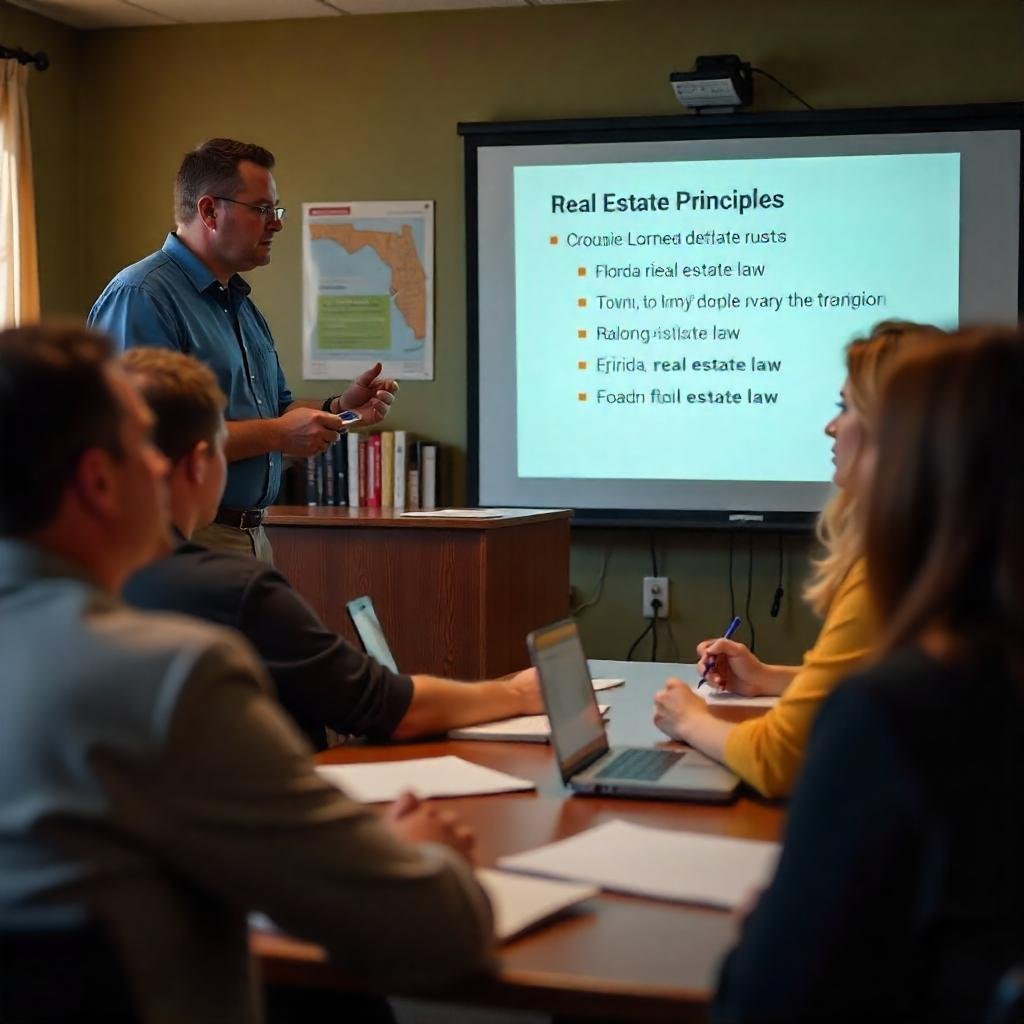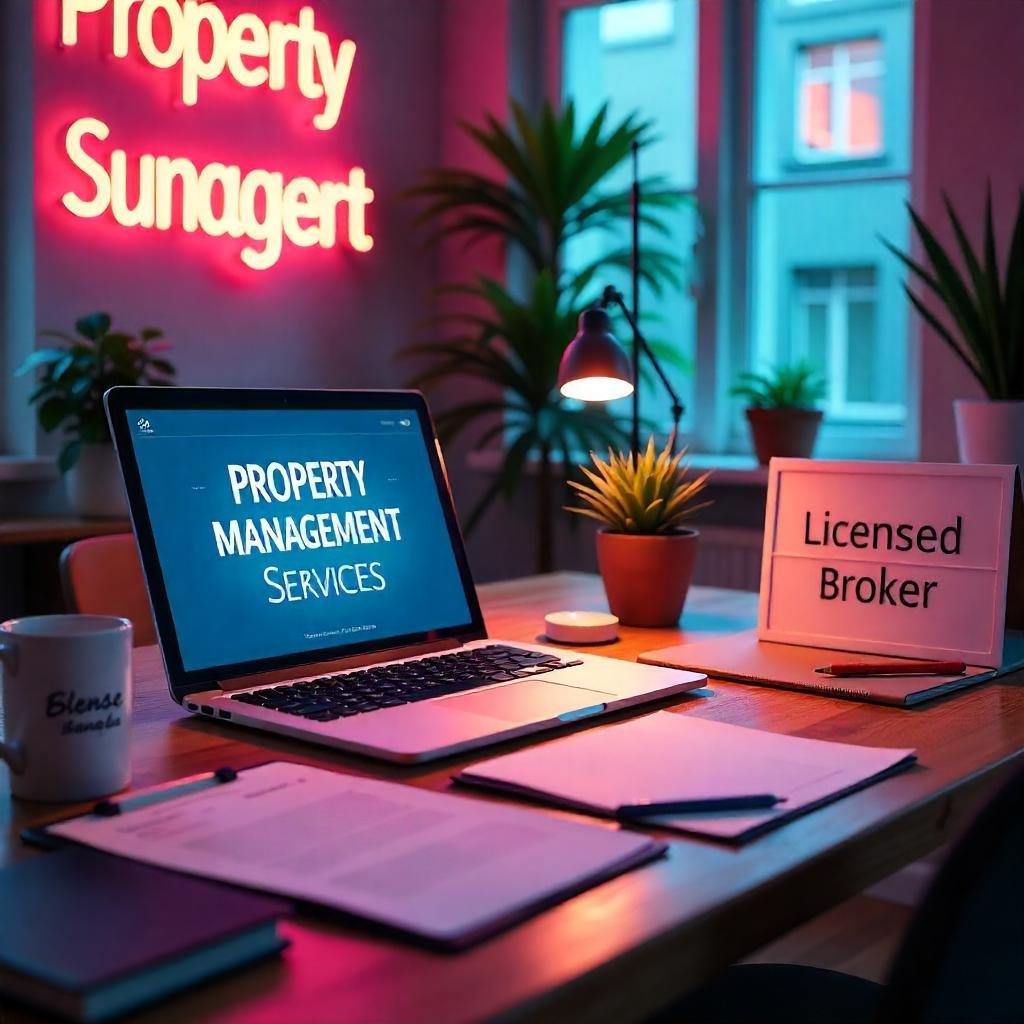If you’re considering a career in property management in Florida, you’re making a smart move! Florida’s real estate market is thriving, and with a high demand for rental properties, property managers are in demand. But how do you get started? Do you need a license? What skills are required? Don’t worry—we’ll walk you through everything you need to know.
This guide will cover all the steps, from meeting state requirements to finding your first clients.
What Does a Property Manager Do?

Before diving into the details, let’s clarify the role of a property manager.
As a property manager, you’ll handle the daily operations of rental properties on behalf of property owners. Your responsibilities may include:
- Marketing rental properties and finding tenants
- Screening tenants and handling lease agreements
- Collecting rent and managing finances
- Scheduling maintenance and repairs
- Ensuring compliance with Florida landlord-tenant laws
- Handling tenant complaints and eviction processes
Essentially, property managers make life easier for property owners by handling these tasks efficiently.
Step 1: Understand Florida’s Property Management Requirements

Do You Need a License?
Yes! In Florida, property managers must hold a real estate broker’s license or work under a licensed real estate broker. If you are only managing properties you personally own, you do not need a license.
To obtain a broker’s license, you must meet certain educational and experience requirements and pass the Florida real estate broker exam.
Step 2: Complete Required Education and Training
Real Estate Education:
To qualify for a Florida real estate broker’s license, you must complete 72 hours of pre-licensing education from a state-approved real estate school. The coursework typically covers:
- Real Estate Principles
- Florida Real Estate Law
- Property Management Basics
- Leasing and Contracts
You can take these courses online or in person at accredited real estate schools in cities like Miami, Orlando, Tampa, and Jacksonville.
Colleges Offering Real Estate Degrees:
If you want to further enhance your qualifications, pursuing a degree in real estate can be beneficial. Several colleges and universities in Florida offer real estate programs, including:
- Florida State University (FSU)– Offers a Bachelor’s in Real Estate through the College of Business.
- University of Florida (UF)– Offers a real estate concentration within its finance program.
- University of Central Florida (UCF)– Offers real estate courses as part of its business programs.
- Florida International University (FIU)– Provides a real estate degree that covers property management, investment, and finance.
- Miami Dade College– Offers real estate certification and coursework for aspiring property managers.
These programs can provide a strong foundation in real estate principles and enhance your career prospects.
Gain Experience:
Before applying for a broker’s license, you must:
- Hold an active real estate sales associate licensefor at least 24 months within the last five years.
- Work under a licensed real estate broker during this period.

Step 3: Pass the Florida Real Estate Broker Exam
Once you’ve completed the necessary education and experience, you must pass the Florida Real Estate Broker Exam, which is administered by the Florida Department of Business and Professional Regulation (DBPR).
Exam Details:
- The exam consists of 100 multiple-choice questions
- You must score at least 75% to pass
- Topics include property management, real estate laws, and ethical standards
Once you pass the exam, you’ll receive your broker’s license, allowing you to manage properties independently.
Step 4: Set Up Your Property Management Business (If Working Independently)
If you want to start your own property management company instead of working under a broker, you’ll need to take a few additional steps.
Business Setup Essentials:
- Register Your Business– Choose a business structure (LLC, sole proprietorship, etc.) and register with the Florida Division of Corporations.
- Obtain a Business License– Check with your local county or city for business license requirements.
- Open a Business Bank Account– Keep rental income and expenses separate from personal finances.
- Obtain Liability Insurance– Protect yourself from legal disputes and financial risks.
Step 5: Build Your Network and Find Clients

Now that you’re licensed, it’s time to find property owners who need your services.
Ways to Gain Clients:
- Join Real Estate Networks– Connect with real estate investors and landlords in Florida cities like Miami, Tampa, Orlando, and Fort Lauderdale.
- Create an Online Presence– Build a website showcasing your services and use social media for marketing.
- List Your Services on Property Management Platforms– Sites like Zillow, Buildium, and AppFolio can help you find clients.
- Partner with Real Estate Agents– Many realtors refer property management clients to trusted managers.
Step 6: Stay Updated on Florida Rental Laws and Best Practices
Property management regulations change over time, so it’s crucial to stay informed.
How to Stay Compliant:
- Follow Florida Landlord-Tenant Laws– Stay updated on security deposit regulations, eviction laws, and fair housing guidelines.
- Take Continuing Education Courses– Florida requires 14 hours of continuing education every two years to maintain your license.
- Join Industry Associations – Groups like the Florida Association of Realtors (FAR) and National Association of Residential Property Managers (NARPM) offer networking and training opportunities.
Final Thoughts
Becoming a property manager in Florida is a great career choice, offering flexibility and income potential. Whether you decide to work under an established brokerage or start your own business, following these steps will help you succeed in the property management industry.
If you’re ready to begin, enroll in a Florida real estate course today and take the first step toward your new career!
Also read The Ultimate Guide to Bed and Breakfast Property Management Software in the United States, How to Become a Property Manager in California: A Step-by-Step Guide









